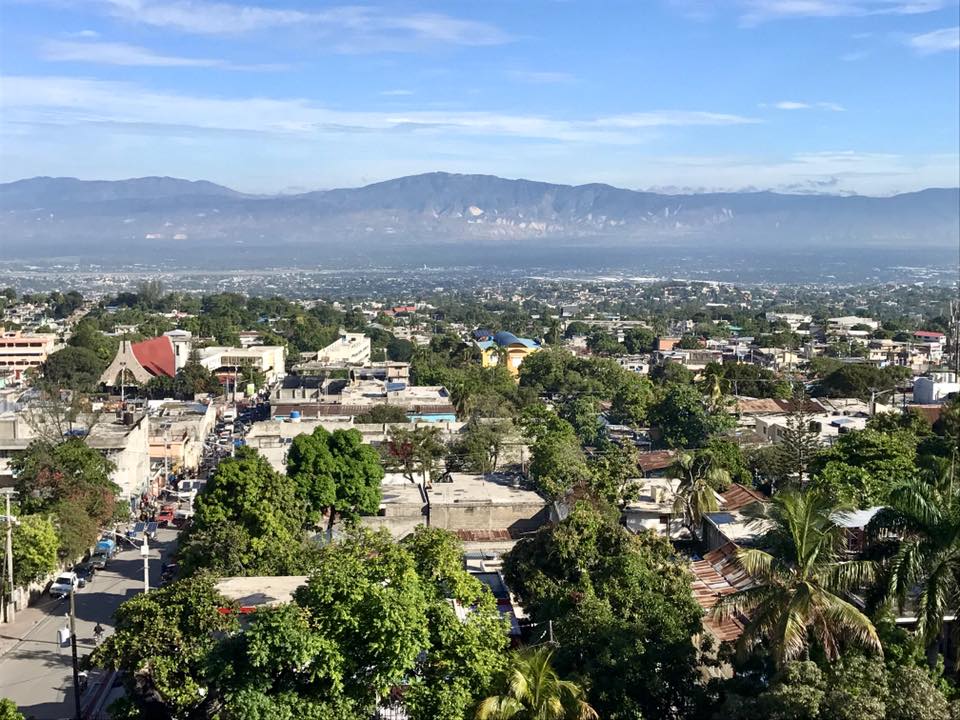
Feb 16, 2022
Following Haitian unions’ open letter to the prime minister demanding an increase in the minimum wage, factory workers in the nation’s capital staged a peaceful protest outside the SONAPI industrial park in Port-au-Prince on February 9 and 10.
Videos and photos posted on Twitter showed large crowds pouring into the Metropolitan Industrial Park in the Port-au-Prince community of Delmas. Demonstrators danced to music and held up tree branches, a popular symbol of uprooting or change.
Police fired tear gas, injuring more than a dozen workers, most of them women. The industrial park—which is home to 16 manufacturers, including garment and electronic factories, and employs at least 12,000 workers—was shut down on Thursday as the demonstration continued. Central union confederations (Confederation of Haitian Workers (CTH), Confederation of Workers in the Public and Private Sectors (CTSP), National Central of Haitian Workers (CNOHA) and EntèSendikal Premye Me-Batay Ouvriye (ESPM-BO)) denounced the actions of Intervention and Law Enforcement Corps (CIMO) against peaceful protesters, calling it [English translation] “torture and other cruel, inhuman and degrading treatment.”
Workers at factories producing textiles and other goods make just $4.82 (500 gourdes) per day for eight hours of work and are demanding an increase to $15 (1,500 gourdes) per day. Three years have passed since the wage has increased. Their demands come as a sharp rise in inflation has increased the cost of basic goods and services such as transportation, health care, and education to as much as three times the current minimum wage.
In 2019, the Solidarity Center conducted a wage assessment, with Haitian workers and their unions, and found that garment worker wages then covered less than a quarter of the estimated cost of living.
Workers are continuing peaceful demonstrations until their demands are met.
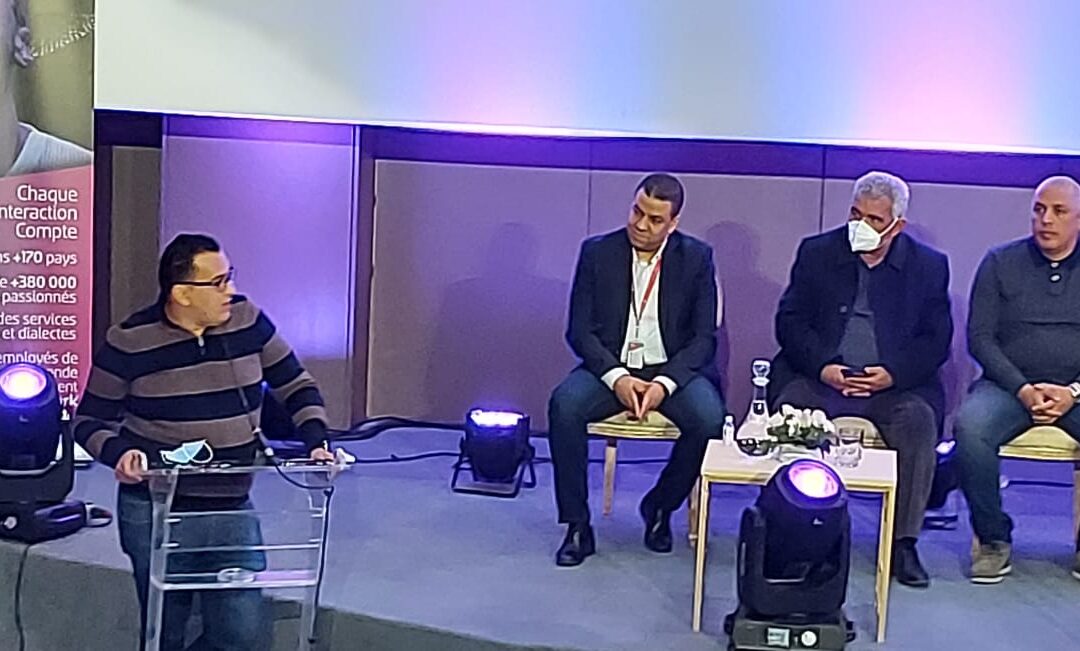
Feb 15, 2022
Some 3,800 call center workers at Teleperformance in Tunisia won a 13.8 percent wage increase and other key contract gains after staging actions and planning a strike in Tunis, the capital, and other cities.
Represented by the Tunisia General Labor Union (UGTT), the workers negotiated an additional three days paid sick leave and increases in funding for tuition, food vouchers and their social welfare fund, which is administered by the government and includes pensions, maternity benefits, medical benefits and unemployment compensation.
The contract goes into effect immediately for the workers, 80 percent of whom are young and the majority of whom are women.
Teleperformance, a France-based multinational with more than 380,000 employees in 83 countries, made $372 million in profits in 2020. Yet poor and unsafe working conditions at its operations in several countries led workers in France, Morocco and Tunisia to strike last year. Workers say they were not paid if they refused to work without sufficient personal protective equipment, including masks, and pointed to inadequate social distancing and lack of sanitary measures for shared headphones and workspaces.
The UGTT, which now represents 12,000 workers at Teleperformance and other tech centers, has helped 5,000 tech center workers form unions in the past two years.
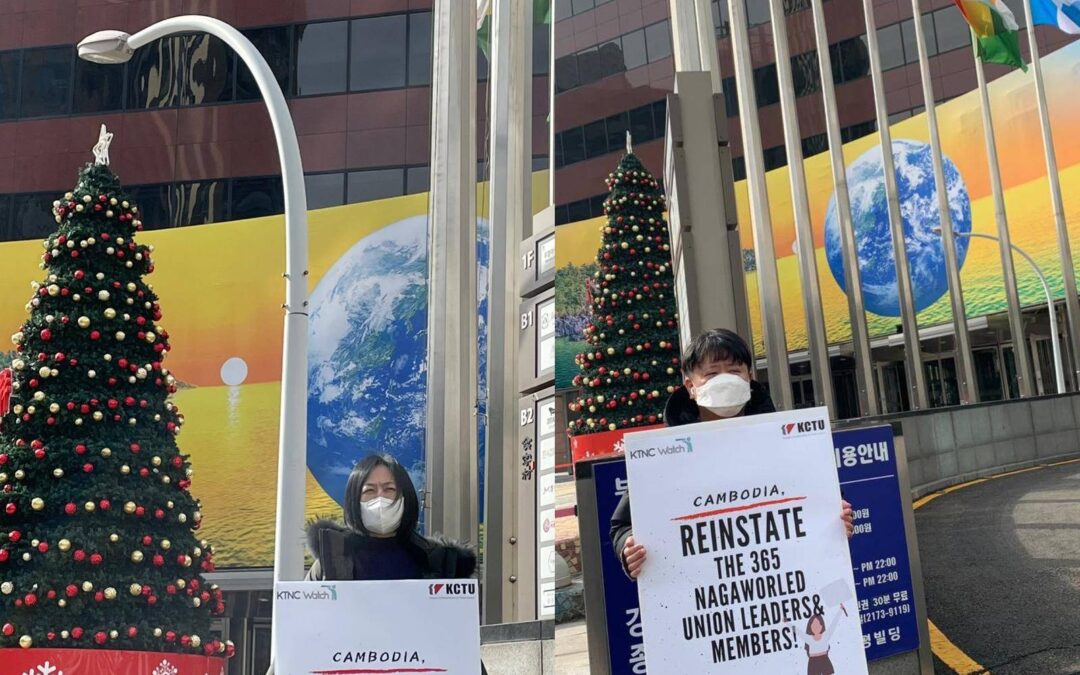
Feb 10, 2022
Eight union leaders jailed for peacefully walking a picket line at NagaWorld Hotel and Casino in Cambodia have been denied pre-trial release, and government officials are now using the COVID-19 pandemic to further interfere with workers’ right to assemble, according to the Labor Rights Supported Union of Khmer Employees of NagaWorld union (LRSU).
The imprisoned union leaders, including union president Sithar Chhim, who was violently taken away by plain clothes police while attempting to join her colleagues on the picket line, say they do not have enough water and are not allowed to contact their families.
During a raid on union offices December 31, police arrested union leaders and seized computers and phones. The leaders are charged with incitement, which carries a sentence of up to five years in prison.
(Send a message to the Cambodian prime minister asking for union leaders’ immediate release.)
Crackdown on Strikers
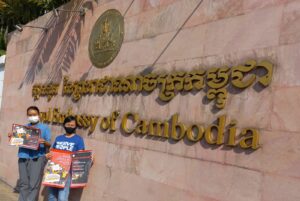
Activists in Bangkok stand in support of striking NagaWorld workers at the Cambodian Embassy, Credit: Thai labor activists
As workers entered their tenth week walking the picket line February 4, the government demanded the strikers leave to take COVID-19 tests, despite the lack of mass COVID-19 testing elsewhere in Cambodia. Recent photos show government officials at maskless social events where COVID-19 tests were not required.
After workers refused to leave the picket line, authorities sent doctors and medical staff to test those on strike, not allowing them to leave until they took a test. More than 700 workers have now been tested, and with four positive COVID-19 cases, LRSU has since suspended the strike for 10 days.
Three NagaWorld workers were detained for allegedly obstructing implementation of the Law on Measures to Prevent the Spread of COVID-19 and other Serious, Dangerous and Contagious Diseases. They were interrogated for days and must appear before a court this week. The LRSU is calling out the government for using legal intimidation to stop a peaceful strike.
In addition, a striker’s husband was detained and taken to the police station because he had been taking photos of authorities. He says he was forced to sign an agreement promising not to take photos of authorities in the future before he was released.
Global Support for NagaWorld Workers
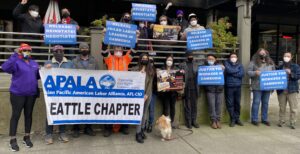
Members of the Asian Pacific American Labor Alliance in Seattle joined solidarity events to support NagaWorld workers. Credit: APALA, Seattle Chapter
Thousands of slot machine workers, dealers, housekeepers and technicians went on strike in late November, demanding the reinstatement of 365 employees who were fired in April. While management asserts the layoffs were due to COVID-19, union leaders say those laid off were all union leaders and activists.
Workers also want the company to provide seniority bonuses and pay, per the law, and a 7 percent raise on their base salary to keep up with inflation. They also are calling for NagaWorld to stop exploiting workers under the premise of internships.
The workers’ strike has gained global support, as global unions, human rights organizations and others have demanded they be allowed to freely exercise their rights to peacefully assemble, strike and form unions.

In Canberra, Australia, activists joined the Day of Action in support of NagaWorld workers. Credit: APHEDA
During a ”Global Day of Action” February 7, solidarity events took place at Cambodian embassies and consulates in 11 cities on four continents. The action coincided with NagaCorp’s board meeting where, despite the corporation’s claims it fired workers due to slowing business during the pandemic, company leaders stressed it is a very strong financial position, with higher than predicted revenue, and that the business is returning to profitability
Global Day of Action participants submitted letters to the consulates that condemned the actions of NagaWorld and the Cambodian government, reiterated the union’s demands and expressed solidarity with LRSU and its members. The Asian Pacific American Labor Alliance, Solidar Suisse, Building and Wood Worker’s International, IUF global union, APHEDA and other unions and labor rights organizations around the world, coordinated the actions in seven countries.
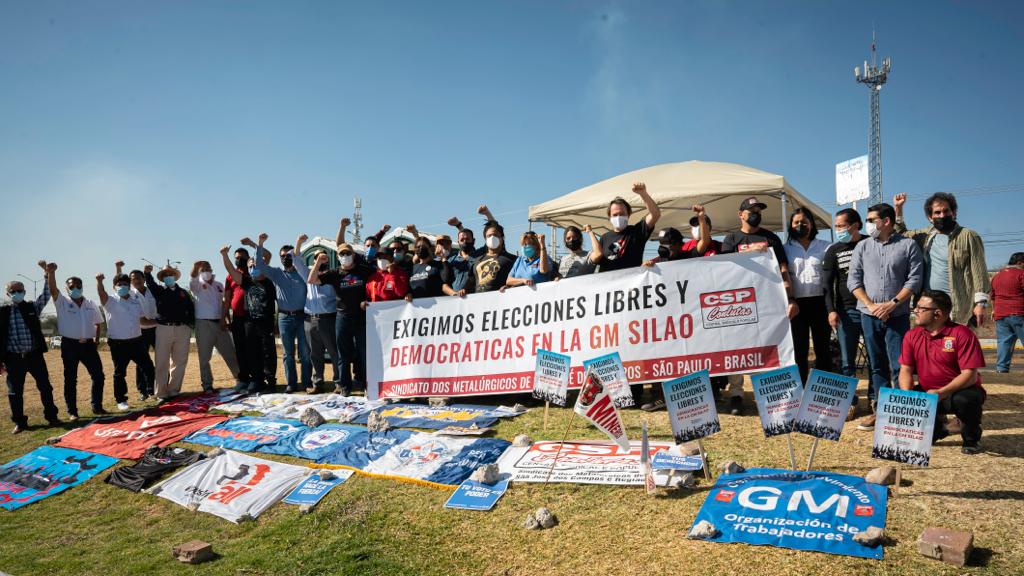
Feb 3, 2022
The new, independent union, Sindicato Independiente Nacional de Trabajadores y Trabajadoras de la Industria Automotriz (SINTTIA), won the right to represent more than 6,000 workers at a truck plant in Silao, Mexico, in a closely watched election. SINTTIA won the election by a wide margin, defeating the entrenched CTM labor group that had held the contract at the plant for 25 years, and two other groups with ties to CTM.
SINTTIA won with 4,192 votes out of 5,389 valid ballots, in an election with 90 percent turnout. The three CTM unions combined won just over a thousand votes.
The victory happened despite attempts to buy votes and intimidate workers, and threats of violence leveled against union leaders and activists. One of those threatened was SINTTIA General Secretary María Alejandra Morales Reynoso. She spoke about the victory at a press conference.

SINTTIA General Secretary Maria Alejandra Morales Reynoso / Credit: Solidarity Center
“Today is a day in history for Mexican workers,” says Morales Reynoso. ” And we have just begun.”
SINTTIA’s victory could signify the beginning of the end of CTM’s decades-long hold on power. The labor group derived its strength from secret contracts, intimidation of workers and close relationships with Mexico’s previous ruling party and employers, whom they appeased by keeping wages low.
The election is a significant test of the impact of trade reforms, which expand worker rights and establish union votes by secret ballot to validate labor contracts. Mexico’s government estimates that prior to reforms, about 80 percent of union contracts were signed without workers’ knowledge, and helped suppress wages and give employers more control over workers.
At this one truck plant this week, workers were able to overcome corruption and threats of violence to vote out the sham union. Thousands of workers now have a chance at collective bargaining, raising wages and improving working conditions, but much work remains to ensure free and fair elections at thousands of workplaces for millions of Mexican workers.
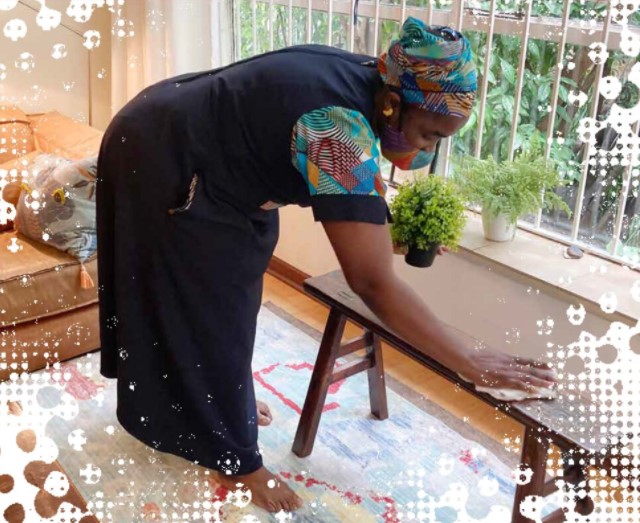
Feb 3, 2022
“The dignity of people’s very being is at stake,” said IZWI Domestic Worker Alliance’s founder and lead researcher Amy Tekie in opening remarks at a recent webinar focused on a new qualitative survey of human rights violations against live-in domestic workers in South Africa.

“Really awful things are happening behind closed doors,” said IZWI’s Amy Tekie.
“The Persistence of Private Power: Sacrificing Rights for Wages“—co-published by Johannesburg-based IZWI Domestic Workers Alliance and the Solidarity Center—surveys the constitutional and human rights of live-in domestic workers in South Africa. It describes how domestic workers’ rights to privacy, freedom of movement and children’s right to parental care are frequently sacrificed for wages in a sector underpinned by racism, sexism and classism. Resulting exploitation—largely invisible because of the private spaces in which it occurs—continues regardless of constitutional protections and industry-specific labor regulations.

We are expected to be indoors even when it is our off day,” said the survey’s lead field researcher Theresa Nyoni. Credit: IZWI
“We are not allowed to be seen around,” said the survey’s lead field interviewer, Theresa Nyoni, of a sectional title housing complex in which she was formerly employed as a domestic worker.
Nyoni described almost universally denied opportunities for live-in domestic workers in sectional title housing to enjoy open spaces on, or near, the employers’ property and lack of freedom to move around or receive visitors in their own quarters—even during off hours. And, for most live-in domestic workers, she noted invasive employer surveillance and almost total lack of privacy.
“We are sleeping with kids and not allowed to lock the door; parents barge into the room and even the bathroom,” she said.
Employers isolate domestic workers by routinely denying them visits from friends, spouses and children, and some domestic workers say they are not allowed to leave their employer’s home for any reason. Nyoni described her former employer’s refusal to allow her to leave the work premises, on her own time, to purchase and arrange for transportation of bulk food items to her own children during the pandemic.
“When I held a plate of food to eat, I was thinking: Did my children get food today?”
Survey interviewees outlined living conditions that Tekie described as “almost kidnapping [in its] constant and complete employer surveillance and control.” Besides being isolated from loved ones, many live-in domestic workers said they were denied employer permission to keep their infants with them, receive packages or use their employer’s kitchen to preserve and prepare their own food, and those employed in sectional title housing complexes reported repeated employer and security guard searches. Some live-in domestic workers said they have chosen abortions for fear of losing their jobs.
IZWI interviewed 115 mostly migrant live-in domestic workers for the survey, most of whom were working in or near Johannesburg—where working conditions are anecdotally better than those than in rural areas, said Tekie. Approximately half of South Africa’s more than 800,00 domestic workers live in by IZWI’s estimate, although definitive data does not yet exist, she said.

The survey affirms that state silence perpetuates the status quo, said McGill University Faculty of Law Professor Adelle Blackett.
McGill University Faculty of Law Professor of Transnational Labor and Development Adelle Blackett underscored the significance of the report being centered on the lived experience of domestic workers and the persistence of private power in their lives, even post-Apartheid.
Describing the report as “chilling,” Blackett defined the status quo for South Africa’s domestic workers as, “historicized, racialized, intersectionalized enslavement to domestic servitude.”

“[This report] is only the tip of the iceberg,” said former South African Labor Court judge Urmilla Bhoola.
“When domestic workers live in, they forfeit their rights,” she said. And so, civil society legal activism is essential, including that spearheaded by trade unions, she added.
Report recommendations include extension to domestic workers of many of the rights contained in South Africa’s farmworker Extension of Tenure Security Act (ESTA) but absent from Sectoral Determination 7 governing domestic work. ESTA guarantees to farmworkers residing on employers’ land “the right to human dignity”—including privacy, having family life, the freedoms of association, movement and religion, and to have visitors and receive postal communication.” Alternatively, concludes the report, legislation specific to the domestic work sector should be created that includes:
- Minimum housing standards for all live-in domestic workers, not only those paying rent
- Basic regulations on rights to family life and visitors, including the right for family to cohabit with a worker, within residential density laws, and the right for workers to have visitors in their homes
- Regulations to protect privacy, explicitly preventing employers from searching rooms, phones or property without permission
- Clear protection of a worker’s right to move freely during off hours
- Guidelines on bullying, harassment and assault, as those provided in the labor law do not address the specifics of the domestic sector
- Guidelines for provision of food.













